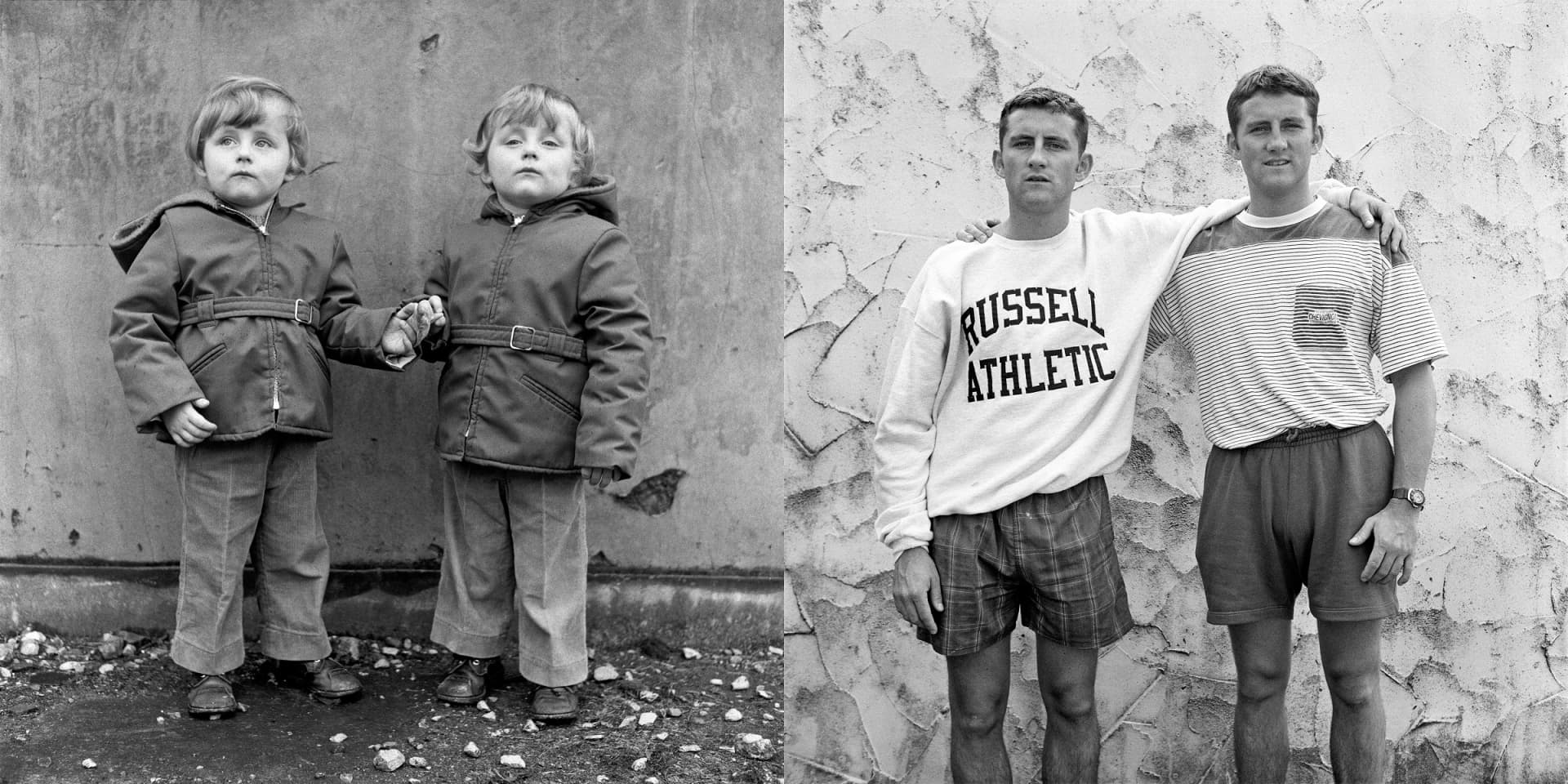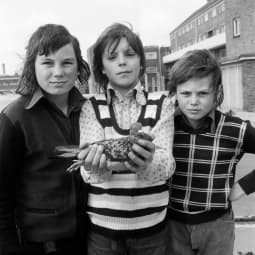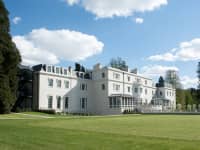This month, Oxford is awash with ideas and events thanks to IF Oxford, the science and ideas festival (18-28 October) which gives a fascinating glimpse into Oxford’s past and offers the mind multiple views of the city, the future and how we might change it.
The built and natural environment around us changes with the decades. Pictures of the past tell unexpected stories. Janice Kinory from the Oxford School of Archaeology looks at images of an earlier Oxford unearthed from University archives (Who cares about old pictures? The Wig and Pen; 7.30pm; Monday 21 October). They illustrate the how changes have taken place and offer a thought-provoking view of the impact of time, nature and people.
As a pioneer of contemporary British documentary photography, Daniel Meadows captured the life of England’s ‘great ordinary’ over five decades, criss-crossing the country in a vintage double-decker bus. Meadows is a story-teller at heart, and you have the chance to hear his tales in a talk (Now and Then; Weston Library, 8pm Fri 18th Oct) as he shares stories from his encounters with strangers, recounts his own experience of the lives of others, and explains his continued curiosity about the people he met which led him to revisit many of his subjects.
The talk accompanies an exhibition, Daniel Meadows: Now and Then (Weston Library; until 24 November) to mark the Bodleian Libraries’ acquisition of Meadows’ entire archive last year. Wrapped in giant blow-ups of news clippings and page spreads, a set of 34 portrait photographs are arranged in pairs depicting the same people separated by an interval of 25 years: the first of each pair was taken in the 1970s as part of Meadows’ Free Photographic Omnibus project; the second dates from the 1990s.
Visitors can also watch 16 short films in a custom-built video booth. These were made using material from across his archive — letters, diaries, audio recordings and more – and are alive with the ‘felt-life’ of Meadows’ documentary practice. They explain how the pictures came about and what happened next, offering a glimpse into the lives of those portrayed.
During IF Oxford, there are also hands-on exhibits at the Weston Library (18 October 12pm-9.30pm) that give new perspectives about the experience of change through body, mind and place. In ‘Victorian Oxford through the stereoscope’, travel back in time through Oxford streets as documented between 1857 and 1860, using the cutting-edge 3D optical instrument of the time, and spot one of the very first photobombers!
In Living Library (6.30-9.30pm) visitors can explore all aspects of change, talking to researchers about bodies, minds and attitudes. ‘Borrow’ a handful of stories from Uncomfortable Oxford, an organisation that considers questions about Oxford’s 'uncomfortable' legacies of inequality and imperialism and the politics of memory in our built environments, and explore how this fits in with our contemporary lives.
Oxford is the setting of many literary works and, inspired by the city, these have in turn shifted the way the city is viewed both globally and by those who live among the dreaming spires. Is the picture they paint a true reflection?
“Oxford is perceived as a place of great privilege, the formative playground of the governing elite, and yet there’s an alternative side to the city’s history that is less heard,” explains Chelsea Haith, Uncomfortable Oxford Coordinator and DPhil candidate in Contemporary Literature. “During the conversation-based walking tour, Uncomfortable Oxford, we discuss surprising facts that challenge the exclusive Brideshead Revisited view of Oxford, going beyond the narrative of Inspector Morse.” (Uncomfortable Oxford: Literary edition; 11.30am, 19, 20, 26 & 27 Oct)
“Many people, and particularly prominent authors, have had a less than rosy time here. For example, Zimbabwean novelist Dambudzo Marechera won a scholarship to Oxford, but was expelled in 1977 for an arson attempt at New College. His novella House of Hunger includes depictions of an African exile’s experience of life in the UK. In Sudanese novelist Tayeb Salih’s classic Seasons of Migration to the North, the protagonist’s psychological trouble with double consciousness is triggered in part by his experience of British cultural imperialism in Oxford. As a woman, Virginia Woolf was not allowed into Oxford’s libraries, and yet her books are now stacked high in the Radcliffe Camera. There’s exciting new work being done on Victorian psychology and madness in Lewis Carroll’s Alice’s Adventures in Wonderland. What can we learn from alternative perspectives of Oxford’s literary history?” Haith asks.
“Thomas Hardy’s Jude the Obscure is a great example of Oxford’s pervasive reputation for classist elitism. With an inferiority complex derived from his inability to access the elite, Jude’s life is wasted trying to get into a fictional Oxford (barely disguised as Christminster), raising questions of why we value particular institutions so highly and at what cost. These are the types of questions that we hope our tour participants will enjoy discussing and debating.”
Chelsea also turns the spotlight onto the influence of the humanities on science: “Oxford has been enormously important in the history of science and in the development of science fiction.” She gives Thomas Huxley as an example. Huxley was a zoologist and an early proponent of science education in the nineteenth century, a contemporary and supporter of Charles Darwin, participating famously in the influential 1860 Oxford Evolution Debate. His ideas on science influenced popular science fiction through their impact upon his family – his grandson Aldous Huxley, alumni of Balliol College, was the author of dystopian science fiction classic Brave New World – and his students. His lectures were particularly inspiring for HG Wells, author of The War of the Worlds and other titles. “Wells imagined time as a fourth dimension in his novel The Time Machine, over a decade before Hermann Minkowski developed Albert Einstein’s theory of relativity into a theory of time as the fourth dimension. We have seen too how imagined technology and scenarios in fiction can inspire scientists to research the science and make these literary inventions a reality.”
You too can look ahead to the future as an individual at the Weston Library (Futureyou 2020; 12-5pm) or with a global perspective with a unique and fascinating ‘augmented audio walk’ through Oxford with a difference; an Oxford where sea levels are rising and wild fires burn (various times; Only Expansion; Sat 19-Sun 27 October). Kitted out in retro-styled noise-cancelling headphones (collect yours from the Oxford Playhouse), you taste how Oxford and your own life might change in the future to an evocative orchestral and electro-acoustic musical score by award-winning composer Duncan Speakman. Choose your own route and hear the sounds of the city around you remixed and manipulated – today’s noise as it could be tomorrow. The soundwaves around will reverberate in new and unexpected ways. They might become the techno-babble of a choir, footsteps echo in new rhythms whilst the brakes of a bus might blend with recordings of changing environments from across the globe, from the crumbling coast of Norfolk to the desert winds of Tunisia. This new sonic landscape of Oxford will alter the participant’s perception of the environment both in the moment and by introducing a visceral and thought-provoking awareness of the tangled ecological future of a planet in crisis.
To see further information on these events, visit if-oxford.com










